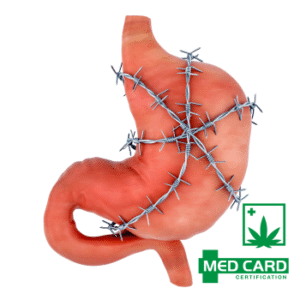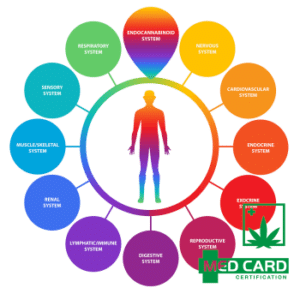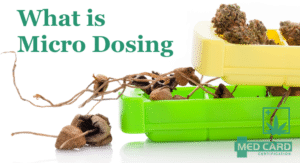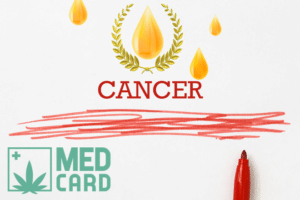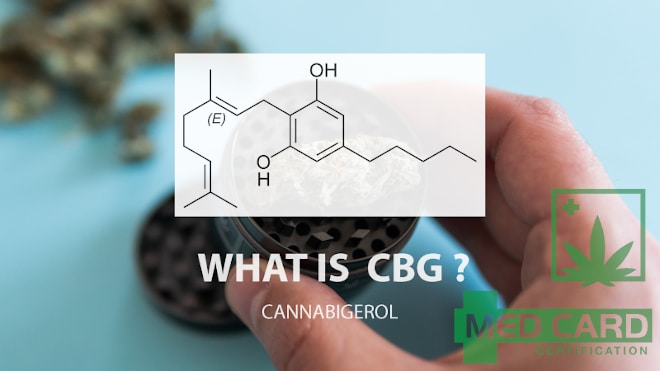
What is CBG?
The CBG Q&A: Origin, effects, benefits, studies, applications, and strains.
You’ve probably heard of THC, and it’s likely you’ve heard of CBD, but there’s a new cannabinoid compound on the block. Cannabigerol, or CBG, is a rising star in the cannabinoid family. What is CBG? Is CBG legal? Will CBG get you high? What are the effects of CBG? What are the health benefits of CBG? What medical conditions can be treated with CBG? And where can you buy CBD? We’ll answer these and other questions and provide additional information about CBG in this post.
There’s a new rising star in the cannabis world. It’s called cannabigerol, or CBG. What is it good for? Quite a lot, actually. For starters, we wouldn’t have THC and CBD if it wasn’t for CBG. Moreover, many CBG users claim that CBG’s effects and medicinal benefits actually surpass those of the major cannabinoids in certain cases.
Let’s get right into this and answer some of the most common questions about CBG.
What is CBG?
According to an article in Wikipedia:
Cannabigerol (CBG) is one of more than 120 identified cannabinoid compounds found in the plant genus Cannabis. Cannabigerol is the non-acidic form of cannabigerolic acid, the parent molecule from which other cannabinoids are synthesized.
Let’s unpack that.
I think we all know what cannabis is by now since it has become one of the major political and social issues of our time. The powerful medicinal compounds produced in the cannabis plant are appropriately named cannabinoids. More than 100 different cannabinoids are produced in the aromatic, resinous flowers of the cannabis plant.
The two most abundant cannabinoids so far have been THC (tetrahydrocannabinol) and CBD (cannabidiol). Researchers have been studying the medicinal effects of cannabinoids for decades. However, as a result of the demonization and subsequent prohibition of cannabis by the federal government, there has not been nearly enough research on the medicinal benefits of these compounds. And there has been far, far less research on cannabigerol.
The term synthesized in the definition above essentially means “created from.” So, what the author is saying is that in order to produce THC and CBD, a cannabis plant must first create a form of CBG known as Cannabigerolic-acid, or CBGA. As the plant matures, depending on various factors such as genetics, light, nutrients, water, and others, CBGA is converted into either CBG, CBDA (cannabidiolic acid) or THCA (tetrahydrocannabinolic acid).
The main difference between the acid and non-acid forms of CBG and other cannabinoids is that the acid form includes an extra carbon atom. In a process known as decarboxylation, the extra carbon atom burns off leaving behind CBG.
So, in essence, CBG is actually a precursor to CBD and THC.
What’s the difference between CBG, CBD, and THC?
The acidic and non-acidic forms of cannabinoids can have markedly different effects. None of these acidic forms of cannabinoids produce intoxicating effects. CBG appears to be more akin to CBD than to THC in the sense that it offers many of the same benefits as CBD and also does not produce a high.
Is CBG legal?
According to a post on Canna Law Blog, the legal status of CBG products may be less problematic than that of CBD products. The author explains that the FDA’s current policy is that it is illegal to add CBD to food products or to sell CBD as a dietary supplement due to the “drug exclusion rule.” This is due to the fact that CBD was investigated and approved by the FDA as a new drug (Epidiolex).
Unlike CBD, however, CBG has not been approved as a drug by the FDA. If CBG is approved as a drug at some point down the line the drug exclusion rule would not apply because CBG was marketed as a food or dietary supplement before any FDA clinical investigation.
Furthermore, writes the author, “this domestic legal framework, alongside the fact that CBG can be lawfully produced and extracted from hemp under the 2018 Farm Bill, seemingly gives CBG a viable legal runway.”
In short, yes, CBG is legal.
Will CBG get me high?
Neither CBG nor CBGA cause intoxication.
What effects does CBG have on the body?
One of the most interesting facts about cannabinoids is that our bodies produce their own natural cannabinoids. Cannabinoids produced by the human body are technically referred to as endogenous cannabinoids, or endocannabinoids. And those not produced by the human body are technically known as exogenous cannabinoids — this includes synthetically produced cannabinoids. And cannabinoids that are produced in plants are known as phytocannabinoids.
As it turns out, phytocannabinoids have the ability to mimic our own natural endocannabinoids to various extents. They do this by interacting with receptors on the surface of cells known as endocannabinoid receptors, or simply cannabinoid receptors. This system of cannabinoid compounds and receptors within the human body is called the human endocannabinoid system, or ECS. We’re not going to get into more detail on how the ECS works here. For more information on the ECS check out this article:
The ECS is responsible for helping the human body maintain homeostasis. That’s a fancy word that just means balanced health. A wide array of bodily functions are regulated by the ECS including pain response, inflammatory response, immune response, appetite, sleep cycles, nerve activity, and much, much more.
Here is a list of some of the ways that CBGA and CBG can affect the human body:
- CBG regulates pain response
- CBG regulates mood and stress levels
- CBG reduces inflammation
- CBG regulates immune response
- CBG protects neurons and brain cells
- CBG regulates the growth of tumors
- CBG is an effective antibacterial
- CBG is an appetite stimulant
- CBG is a muscle relaxant
- CBG reduces intraocular pressure (the pressure of eye fluid)
Many of these effects are similar to those provided by CBD. However, in some cases, CBG is reported to exceed the benefits of CBD.
What are the health benefits of CBG?
Because of the array of effects listed above, as a dietary supplement, CBG might provide general health and wellness benefits.
It’s important to note that because each person’s ECS is different, CBG can affect each person differently. However, some of the potential health benefits that could result from supplementing with CBG might include:
- CBG protects the body from the damaging effects of stress
- CBG protects the body from the damaging effects of inflammation
- CBG can help to relieve pain
- CBG helps to improve mood
- CBG helps to reduce anxiety
- CBG fights microbial infections, viruses, funguses, etc.
- CBG improves circulation and lowers blood pressure
- CBG improves digestion

What medical conditions can be treated with CBG?
As we mentioned above, CBG provides similar benefits to CBD and THC and therefore might be a powerful ally in treating a wide array of medical conditions.
Here are some of the medical conditions which are being treated with cannabinoids:
- Acne
- ADD & ADHD
- Addiction & Alcoholism
- ALS (Amyotrophic Lateral Sclerosis)
- Alzheimer’s Disease
- Anorexia
- Antibiotic Resistance
- Anxiety
- Arthritis
- Asthma
- Atherosclerosis
- Autism Spectrum Disorder (ASD)
- Autoimmune Diseases
- Bipolar
- Cancer
- Colitis & Crohn’s Disease
- Depression
- Diabetes
- Endocrine Disorders
- Endometriosis
- Epilepsy & Seizures
- Fibromyalgia
- Glaucoma
- Heart Disease
- HIV & AIDS
- Huntington’s Disease (HD)
- Inflammation
- Inflammatory Bowel Disorder (IBD)
- Irritable Bowel Syndrome (IBS)
- Kidney Disease
- Liver Disease
- Migraines
- Mood Disorders
- Motion Sickness
- Multiple Sclerosis (MS)
- Nausea
- Neurodegeneration
- Obesity
- OCD (Obsessive Compulsive Disorder)
- Osteoporosis/Bone Health
- Pain
- Parkinson’s Disease
- Prion Disease (Mad Cow)
- PTSD (Post Traumatic Stress Disorder)
- Rheumatism
- Schizophrenia
- Scleroderma
- Sickle Cell Anemia
- Skin Conditions
- Sleep Disorders
- Stress
- Stroke
- Traumatic Brain Injury (TBI)
For those of you interested in learning more about the science behind some of these medical treatments we have included a list of links to CBG research studies at the end of this article.
What kinds of CBG products are available?
In recent years, cannabis cultivators have developed strains of hemp (cannabis with only trace amounts of THCA) that are high in CBGA. CBG oil and other CBG-infused products can be produced from these high-CBG strains using the same methods as those used to make CBD oil.
Utilizing a combination of extraction, filtration, and distillation techniques, various levels of refinement are possible starting from raw CBGA oil all the way up to 99.9 percent pure CBGA. This means that all of the same products can be produced from GBG as from CBD and THC.
Here are some of the many types of products that are available with CBG:
- CBG oil
- CBG tincture
- CBG capsules
- CBG tablets
- CBG lozenges
- CBG candy
- CBG edibles
- CBG beverages
- CBG ointments
- CBG salves
- CBG balms
- CBG creams
- CBG lotions
- CBG vape pens
- CBG vape oil
- CBG vape additive
- CBG concentrates
- CBG isolate
- CBG flower, smokable
- CBG pre-rolls
- CBG hemp cigarettes
What cannabis/hemp strains are high in CBG?
Being the new cannabinoid on the block, there are fewer strains that are high in CBG than there are for THC and CBD. But in recent years, cultivators have developed some excellent high-CBG strains.
Because CBGA naturally converts into CBD, THC, and other cannabinoids, mature cannabis plants are left with only trace amounts of CBG. However, what researchers have discovered is that the plant also produces compounds known as synthases that facilitate the conversion process.
By manipulating genetics, researchers have been able to produce plants that are extremely low in these synthase compounds. As a result, much of the CBGA in the plant is left unconverted.
Here are some of the more common cannabis strains that are high in CBGA with only trace amounts of THCA:
- Super Glue CBG – 22 percent CBG
- Lemon Cream Diesel CBG – 20 percent CBG
- White CBG – 20 percent CBG
- Jack Frost CBG – 13.5 percent CBG
Where can I purchase CBG oil, CBG flower, and other CBG products?
You might be able to find CBG products at your local CBD specialty stores. However, your best bet is to purchase them online where you can find a much wider selection of CBG products.




